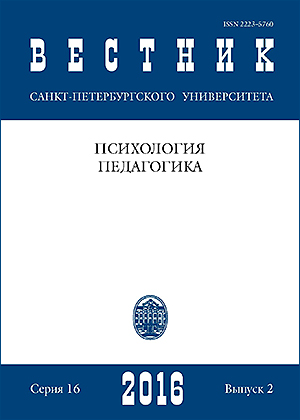Когнитивные факторы различий в паттернах вакцинации: воспринимаемый риск действия и бездействия
Аннотация
В последнее время во всем мире наблюдается снижение охвата вакцинацией, обусловленное негативными установками населения по отношению к ней. В настоящей статье была поставлена задача количественно оценить применимость модели убеждений в отношении здо ровья (Health Belief Model) и ее отдельных компонентов в формировании паттернов вакцинации на выборке российского населения. Использовалась подвыборка лиц, имеющих несовершеннолетних детей (N=260), из репрезентативного телефонного опроса совершеннолетних жителей Санкт-Петербурга. Исследование показало, что около 20 % респондентов не полностью вакцинируют своих детей, причем 4 % родителей не полностью их вакцинировали при отсутствии медицинских показаний. Наиболее предиктивным компонентом модели в отношении паттерна вакцинации является представление о безопасности вакцинации для детей. Воспринимаемая уязвимость и тяжесть предотвращаемых заболеваний не являются значимыми предикторами отказа или согласия с вакцинацией.
Ключевые слова:
модель убеждений в отношении здоровья, вакцинация, отказ от вакцинации, воспринимаемый риск, воспринимаемые выгоды, когнитивные факторы, психология здоровья
Скачивания
Библиографические ссылки
Литература
References
Опубликован
Как цитировать
Выпуск
Раздел
Лицензия
Статьи журнала «Вестник Санкт-Петербургского университета. Психология» находятся в открытом доступе и распространяются в соответствии с условиями Лицензионного Договора с Санкт-Петербургским государственным университетом, который бесплатно предоставляет авторам неограниченное распространение и самостоятельное архивирование.




